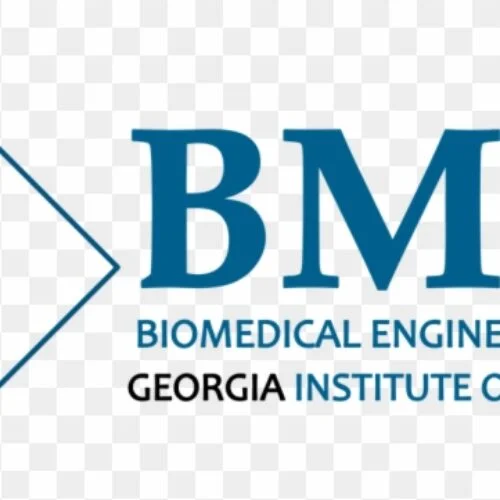Study In Georgia

Biomedical Engineering program in Georgia
The program educational objectives of Biomedical Engineering program is to give students knowledge of how to apply their fundamental engineering skills to solving problems in medicine and Biology. Program covered include, medical instrumentation and design, physiology, biomaterials, mass transport, application of computers in medicine, artificial implants, and medical imaging. Anatomy and physiology as they relate to specific applications to bioengineering will be reviewed. It is intended to facilitate the student’s understanding in all areas of biomedical Engineering so that they can appreciate the collaborative nature of the field. Provide an empowering professional degree for students who intend to become practicing engineering.
Biomedical Engineering Program Prerequisites
The applicant is admitted in compliance with the Georgian Legislation. The knowledge of the language of the degree program is necessary.
Learning Outcome/Competencies
Knowledge and understanding
- Knowledge of the field of Biomedical Engineering, understanding of the principles; Knowledge of medical and biomedical engineering terminology.
- Students will learn to model biomedical systems, to access research databases to research the engineering and medical literature. The student will learn to use the internet and library resources to write a literature review paper. The student will learn principles relevant to each discipline within biomedical Engineering and identify examples of the industrial and academic aspects of bioengineering, including basic and applied research. Understanding of the role of the clinical engineer in Health Care.
Applying Knowledge
- Use of the specifications for the field of a biomedical Engineering problem, the student will be able to solve biomedical engineering-related problems in electrical circuits, mechanics, systems engineering, and fluid and mass transport using mathematics.
- Development of research or practical projects in the accordance; Develop critical review skills, in the area of Bio-Medical Engineering. To develop the ability to critically evaluate current advances in issues and controversies in the area of Biomedical Engineering. An ability to apply knowledge of mathematics, medical science and engineering to biomedical engineering problems. An ability to design and conduct experiments, as well as to analyze and interpret data. An ability to make measurements and interpret data from living systems, addressing the problems associated with the interaction between living and non-living materials and systems. Clear public presentation of opinions in accordance with corresponding knowledge and logic for a professional and general audience. An ability to use the techniques, skills, engineering and computing tools necessary for engineering practice. An ability to function on multi-disciplinary teams. The capability to apply mathematics (including statistics) and engineering skills to solve the problems at the interface of Medical Systems. A recognition of the need for, and an ability to engage in life-long learning. A knowledge of contemporary issues
Making judgments
- The broad education necessary to understand the impact of engineering solutions in a societal context, also analysis of data and/or situations analysis by the mean of standard and some distinctive methods and form of the reasonable conclusions on their basis;
- Purposeful education for decision-making with the purpose to make inferences. Data analysis according to standards and different methods for reasoned inferences.
Communication skills
- An ability to communicate effectively orally and in writing. Preparing for detailed written reporting concerning ideas, existing problems, and their solutions; Information pass orally to professionals and non-professionals; Creative use of modern engineering, information and communication technologies;
- Preparation of the detailed written report on the ideas, existing problems and from oral transmission to experts and non-experts by means of high-quality and quantitative information. Creative use of the modern information communication technologies, for the achievement of the working purposes
Learning skills
- Multilateral and consistent assessment of own earning process; determining of the necessity of further studying; determining of directions of own earning with the goals of enrichment of professional knowledge and experience.
- The ability of search, assimilation of the relevant information for the purpose of extension of the area of knowledge and experience in the medical sphere. In the field and in the general sphere independent implementation of learning activity and the high level of strategic planning this process.
Values
- Participation in the process of values formation and aspirations to their sustainable implementation; Defense of professional values (accuracy, punctuality, objectivity, transparency, organization, etc.); An understanding of the professional and ethical responsibility of biomedical (Clinical) Engineer.
- The direction of operation of medical institutions for safety and continuous improvement of the ecological and safe environment. Understanding of professional and ethical responsibility of the biomedical engineer. Observance of norms of ethics and moral responsibility and values in the formation of this process. Involvement in their development and implementation.
Forms and Methods of achieving the learning outcomes
- Lecture
- Seminar (working in the group)
- Practical classes
- Laboratory classes
- Practice
- Course Work/Project
Independent Work
Consultation
Spheres of Employment
Organizations and companies which perform: improve, design, development and using of medical equipment, devices, and items such They may research with scientists, chemists, and physicians in hospitals and universities.
They also help maintain and monitor complex medical systems while working in hospitals. Enormous job opportunities in varied spheres like medical equipment manufacturing, orthopedic and rehabilitation engineering, in public and incorporated sectors are available for biomedical engineers. They can also be absorbed in hospitals to provide valuable advice on the status of medical equipment.
Biomedical engineers can also employ themselves in research activities by working harmoniously with doctors in the field of computational mechanics, physiology, medicine and invent cutting-edge technology. In representative firms of vendors of medical devices, for carrying out of marketing and service. Also as Health Information Technology specialists of information technologies for processing of medical information.
